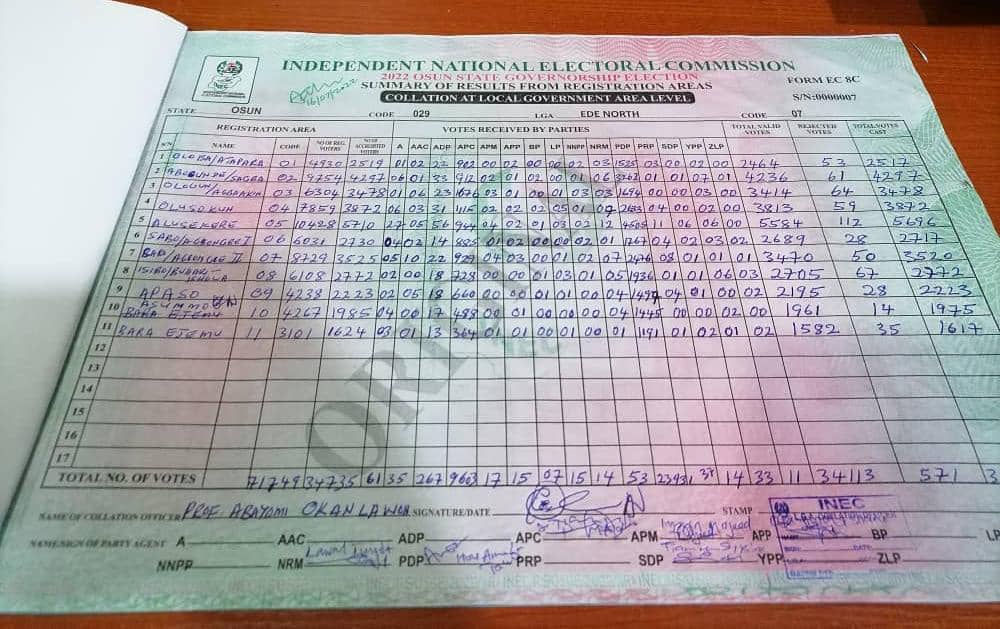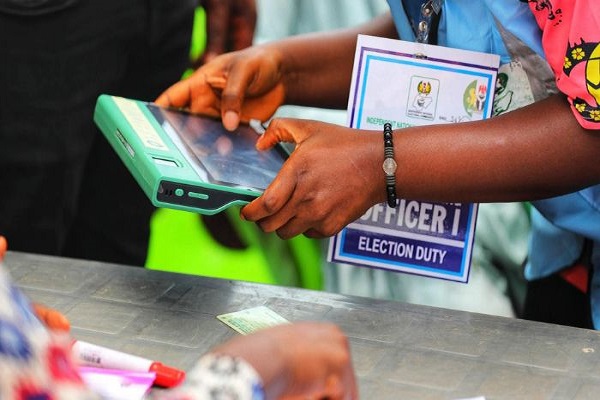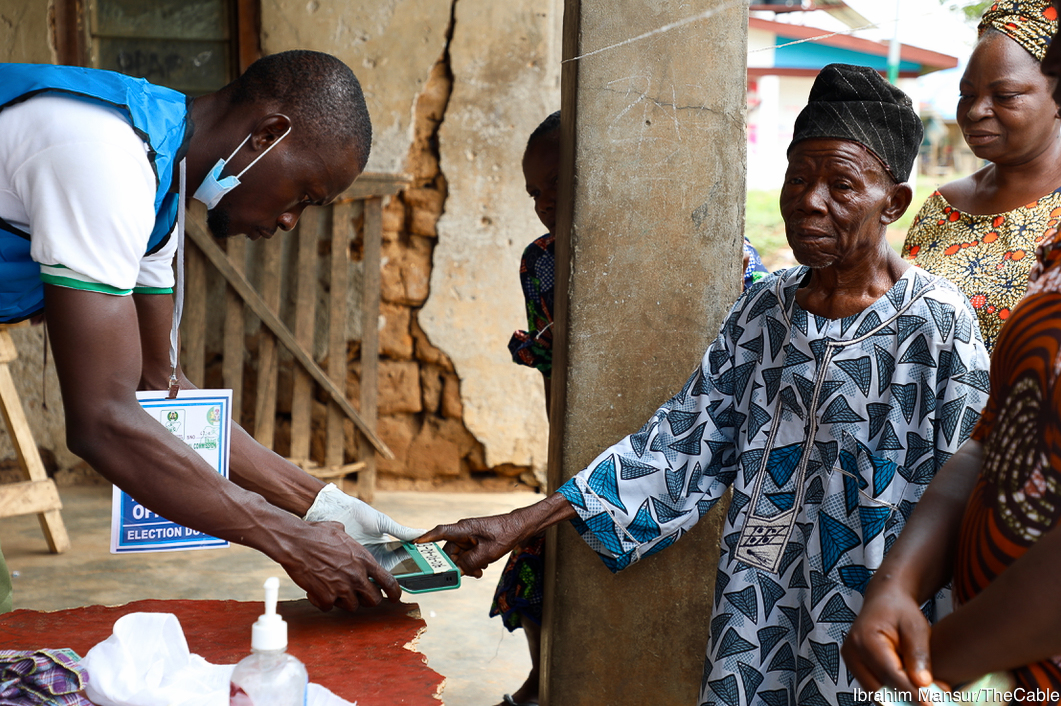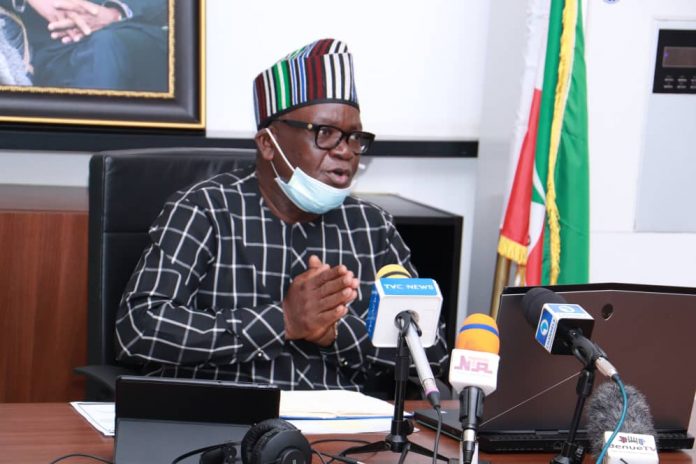In February, President Muhammadu Buhari signed the much-anticipated electoral act amendment bill into law. For some, it portrayed the government’s commitment to upholding transparent and credible elections. Others, however, appeared sceptical.
Some parts of the amendments, like the early release of election funds to the Independent National Electoral Commission (INEC), early conduct of party primaries and submission of candidates’ lists, were well applauded. E-voting/transmission of results, on the other hand, sparked concerns from Nigerians.
Sections 47 and 50(2) of the Electoral Act 2022 give legal backing to the use of smart card readers, electronic accreditation of voters, and any other accreditation technology that INEC deploys. It also gives legal backing to the electronic transmission of results as INEC now has the power to determine the manner(s) of transmission of results.
INEC had, in 2020, established a result viewing portal (IReV) to provide the public access to election results from polling units upon completion. In addition to its new technological powers, section 62(2) empowers the commission to maintain a centralised electronic election register for e-collation.
Advertisement
The changes have since sparked debates on INEC’s ability to effectively change the game, especially as the country prepares for the 2023 general election.
The concerns may be drawn from a recollection of a hacked INEC website in 2015 during the accreditation for Nigeria’s presidential and national assembly elections.
In a position paper released in 2021, however, the commission argued that the concerns raised were marked by entrenched partisan positions, incomplete information, unfounded fears, groundless conspiracy theories, and profound misconceptions.
Advertisement
The position paper was released to douse the heated talks that had since flared up, as the commission insisted that it had developed “adequate structures and processes to successfully transmit election results electronically”.
But a statement from INEC in 2022 seemed to have solidified the concerns that the electoral umpire tagged “unfounded fears”.
REPEATED ATTACKS ON INEC’S SYSTEM

Advertisement
On September 9, while speaking at a stakeholders’ conference on election result management, Mahmood Yakubu, INEC chairman, said the commission’s IReV portal had come under attack from hackers across the world. He admitted that the commission had recorded several attempts to hack the cyber security system of the result viewing portal.
“Another technical concern for us is the repeated attempts to break through our cyber security system for the portal,” the INEC chairman had said.
“Our engineers reported several cyberattacks on the portal during the Ekiti and Osun governorship elections, some of them from as far as Asia.”
Although Yakubu said the attempts were unsuccessful, he noted that the commission needed to “remain vigilant and strengthen defences”, a far cry from the impression the INEC had earlier portrayed.
Advertisement
OMITTED DATA ON RESULT SHEETS, INCORRECT ELECTION FORMS

Advertisement
YIAGA Africa, a civil society organisation, also shared its findings on the tested electronic transmission of results in the recent Ekiti and Osun governorship elections.
Samson Itodo, YIAGA’s executive director, said the organisation curated an election result analysis dashboard (ERAD) as a pilot independent audit and integrity test assessment tool for INEC’s result management.
Advertisement
Among the issues discovered were wrongly inputted and omitted data on result sheets, upload of incorrect election forms, and other inconsistencies that threatened the transparency of the e-transmission process.
“In the Ekiti election, 88 result sheets were not entered into the ERAD database due to issues that disabled data entry. Similarly, 87 results were not processed on the ERAD in the Osun election owing to some issues,” Itodo said.
Advertisement
“Based on the ERAD findings, INEC presiding officers uploaded forms or documents other than Form EC8A as prescribed in the guidelines and manual for the election.
“From the result sheets downloaded on the IReV, important delimitation data such as the number of registered voters and accredited voters for polling units were either omitted or wrongly inputted on the Form EC8A.
“The monitoring process also showed a variation in the total number of rejected ballots, and the figures announced by INEC at the final collation.”
Apart from voting, results management is easily the most critical aspect of election administration. Indeed, for most politicians, it is perhaps more important than voting. The reason for this is not farfetched. While voting is an open and public activity, results management is usually run by a few electoral officials, mostly outside the glare of the public.
The e-transmission of results, INEC said, would improve the quality of elections and increase public confidence in the electoral process. But its debut at the Ekiti and Osun elections has continued to raise questions.
Although one could try to understand that it is a new path for the commission, one could also argue that there was sufficient time to solidify defences and strategies to ensure hitch-free e-transmission of results.
‘WE CAN’T BE 100% SURE OF ACCURACY’

Speaking with TheCable, Adeboye Adegoke, programme manager at Paradigm Initiative, said INEC’s e-transmission would need to be equal and inclusive across the country before it can be deemed effective.
“As an organisation that works on digital rights and inclusion, what we look for in situations like this is the likelihood that every corner of Nigeria has the technology that will enable INEC to be able to do this,” he said.
“There has been assurance from INEC that they have whatever technology they need to achieve this across the country but what would be problematic would be where in some cases they were able to upload the results on the servers and in some other places they were unable to — in other words manual and digital transmission. It’s going to lead to a lot of malpractices and other problems.”
Omotola Abidemi, data analyst and fellow, Fredrich Ebert Stiftung Open Minds Young Voices, also thinks that INEC’s cumbersome responsibilities and the country’s frail data system may hamper efforts to effectively transmit results electronically, but believes it is a necessary step.
“As a country, we have a huge problem with data; I can tell you that. We do not have a strong database. Coming from the aspect of data and technology, yes there may be lapses in the BVAS system but that does not mean that this system may not be effective. We’re still struggling with network, so we cannot be sure of 100% accuracy. Servers may even be down from a high level of traffic,” she told TheCable.
Abidemi added that all the fears raised are valid, and that even “PVC collection was not easy and that was because there were gaps in their technology, how much more the general election?”
INEC: WE’RE AWARE OF OUR SHORTCOMINGS
Repeatedly, INEC has attempted to allay the fears of Nigerians on the security of the BVAS. It maintains the system has been fortified and loose ends have been tightened.
The presidency has also given the commission backing on the use of the BVAs in the forthcoming elections.
Femi Adesina, presidential spokesperson, said technology was instrumental in Buhari’s installation as president and would equally be important for his successor.
In spite of the continuous reassurances, the commission admits there may be drawbacks.
Rotimi Oyekanmi, INEC’s spokesman, told TheCable that the commission is aware of its shortcomings but has adopted strict measures to seamlessly imbibe technology and increase the trust of Nigerians in the electoral system.
“INEC is aware that the technological world is fraught with dangers. Websites and servers in many countries are constantly hacked or at risk of being hacked by dark forces for various reasons. Luckily, there are also cyber security measures that have proved quite effective against cyber marauders, whose intention is to kill and destroy,” he said.
“To that extent, and with the benefit of hindsight, the commission has been careful in adopting only the right kind of technology relevant to its need, while taking the issues of cyber security seriously.”
Oyekanmi said the commission has started covering grounds including “extensive training of staff that will handle the BVAS and ad-hoc staff and will ensure adequate protection of all our sites to be deployed for the 2023 general election”.
But with an increased number of registered voters and a possible increase in the number of voters in the 2023 elections, will INEC be able to show capacity in the management of results, especially with the e-transmission?
Add a comment






